
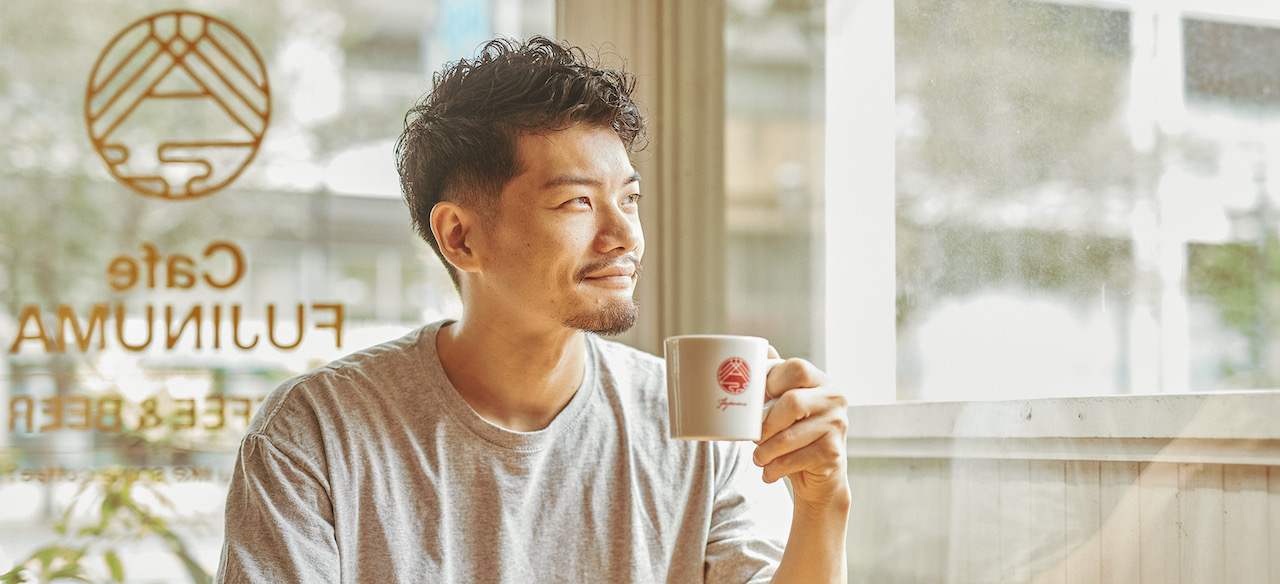
“Creating a town where we want to live by ourselves” Expanding the circle of like-minded people with a cafe as a community hub
Cafe FUJINUMA was opened in 2013 along the main street of Gionjo-dori street, a three-minute walk from the west exit of JR Oyama station in Tochigi Prefecture. Mr. Eisuke Fujinuma who grew up in the area opened the shop to fulfill his mother’s long-held dream of opening a café with his father. We interview Mr. Fujinuma, who is currently operating several stores and is also actively involved in community development to make the area more lively.
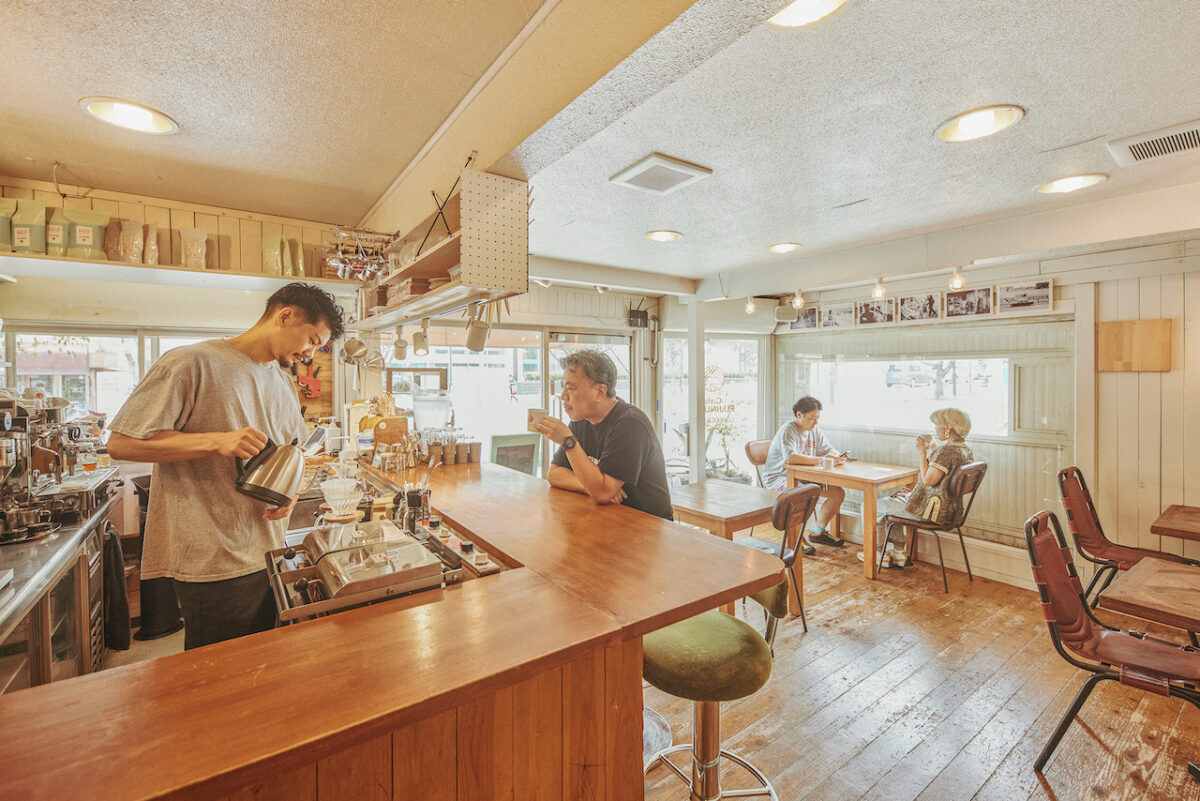
Our cafe is like a friendly Japanese-style bar frequented by the locals in the neighborhood
If you visit Cafe FUJINUMA without having any prior information given, you might be a little bit confused. A sign “COFFEE & BEER” appears on the door of the shop. This is because the cafe also serves as a bar serving beer and other alcoholic beverages on weekend nights.
Although the style of operation is different from that of regular cafes, the essential function of the cafe remains the same. In pre-Covid time, this bar-style cafe had eight seats at the counter and twelve seats at tables providing a friendly lunch time atmosphere like you can find at a local Japanese-style bar patronized by the local people in the neighborhood.
Fujinuma states, “Having the counter makes it much easier for us and the customers to start talking to each other. We can tell from the seats customers choose if they want to talk to us or they want to be left alone. I believe that the store is a place where everyone can enjoy conversations, so I encourage everyone who sits at the counter to join in the conversations.”
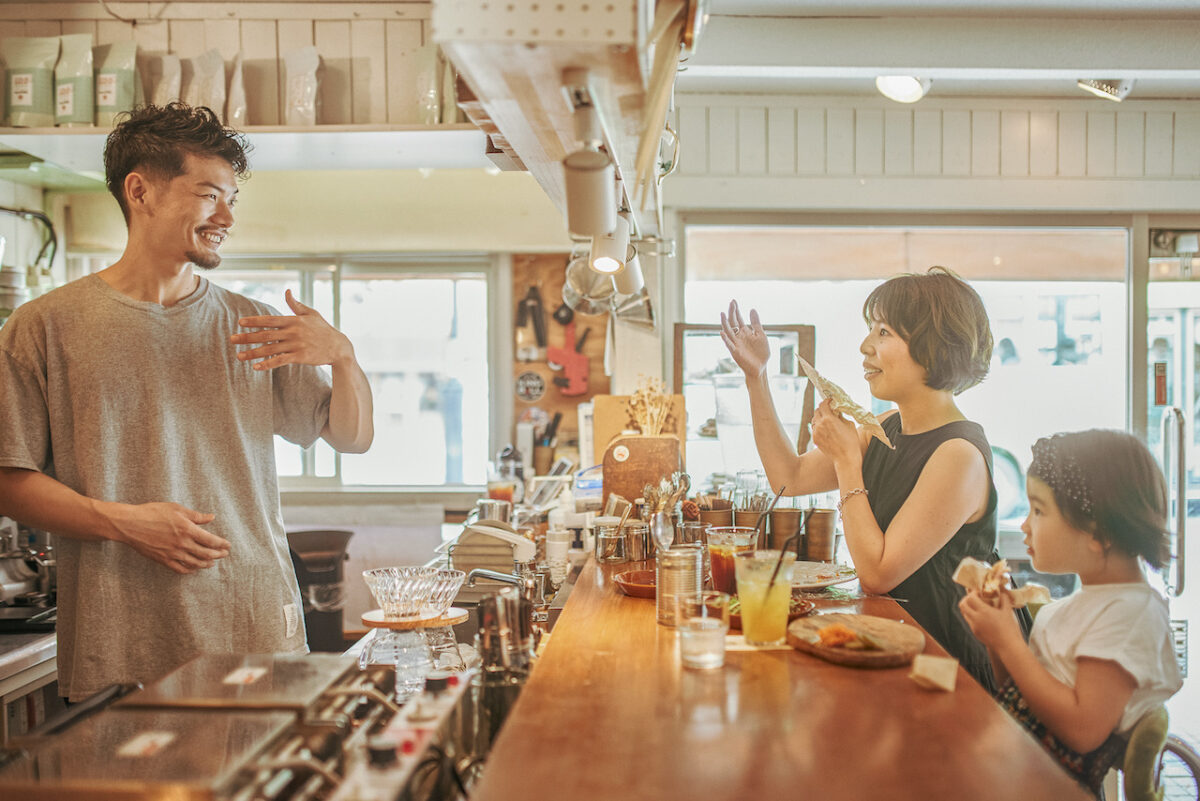
“The appeal of sitting at the counter is that the atmosphere changes depending on the customers who sit at the counter. We sometimes talk about hilarious random things but other times we seriously talk about coffee. The atmosphere of the store is created by the people who are at the store at that moment. Dramatic events often happen when two total strangers sitting next to each other enjoy casual conversations. In fact, I met my wife at the counter in this cafe.” (laughs)
The close and friendly connections among different age groups that was commonplace in Japan in the past is a common sight at Cafe FUJINUMA. A high school boy who currently works part-time at the store was a regular customer since he was in elementary school and now dreams of becoming a barista someday. His mother used to bring him to the cafe where he did his homework or took English language lessons from international students who went to a nearby university calling it a “one coin English lesson” paying them a 500 yen (about 5 USD) coin per lesson.
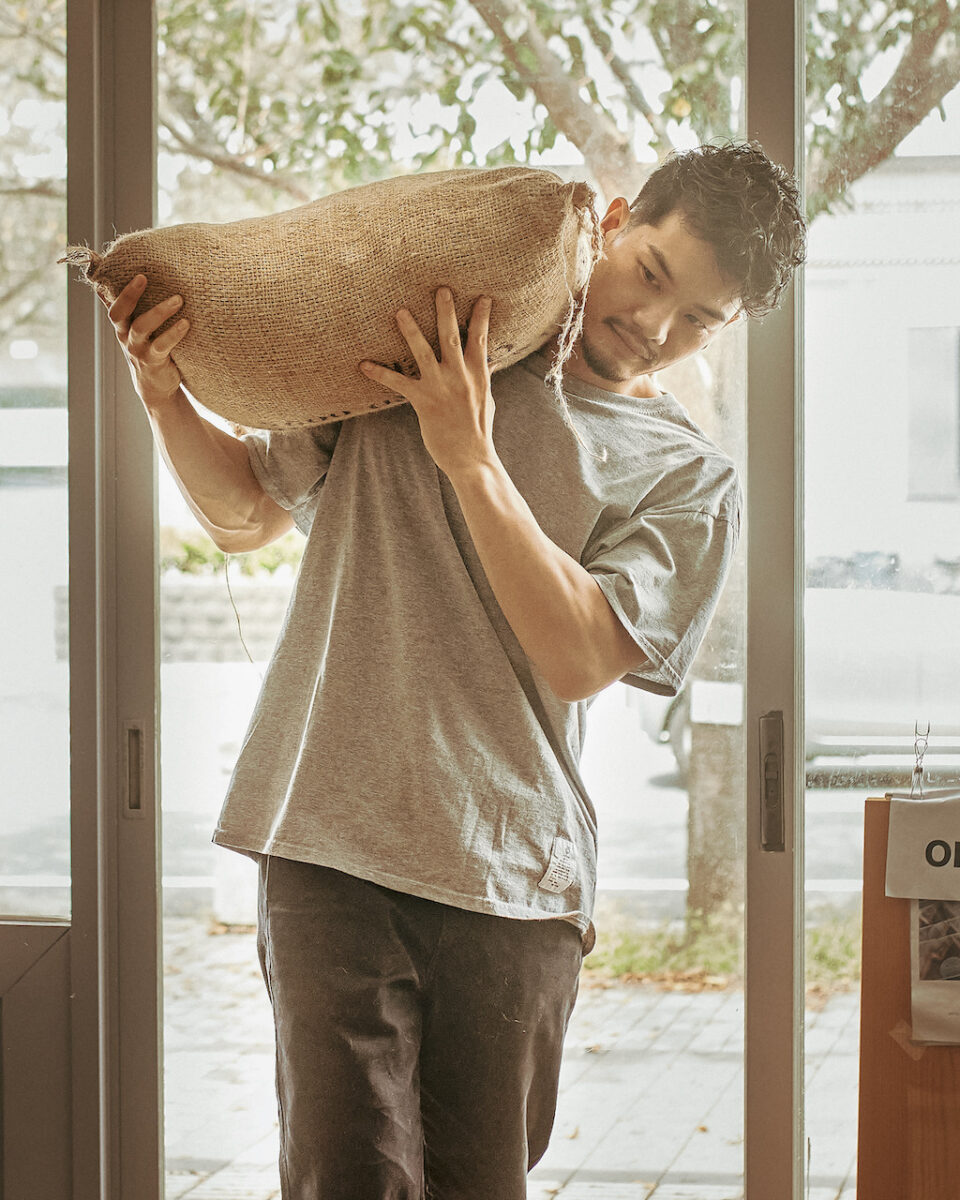
The view on the way of life has changed due to the death of his cousin
After graduating from high school, Fujinuma, who once aspired to become a film director, studied film at a specialized university in Tokyo. After graduating from university, he did several freelance works in film and television production. He was getting closer to reaching his goal one step at a time, but one particular event happened that suddenly changed his life.
Fujinuma states, “When I was twenty-two years old, my cousin Harumitsu, who was three years older than me and studying at medical school to become a doctor, died in a motorcycle accident at the young age of twenty-five. Harumitsu and I spent almost every weekend or whole summer vacations together in elementary and junior high school days, and he was my biggest influence in everything from fashion to movies, so I felt like I had lost my brother.”
“What I felt even more shocked and lost about was how sad and “cruel” it was for him to die before the parents. At his funeral, my heart sank seeing his parents and other adults broken down in tears.”
“Up until that point, I had lived my life thinking that it was my life, so I could do whatever I wanted, but after the death of Harumitsu, I began to feel that I would regret it if I don’t give back to my parents while I still could. Harumitsu was in the sixth year, the final year at a medical school and was about to graduate. He was about to start paying back the amount of tuitions to his parents, so I felt it in the way even more.”
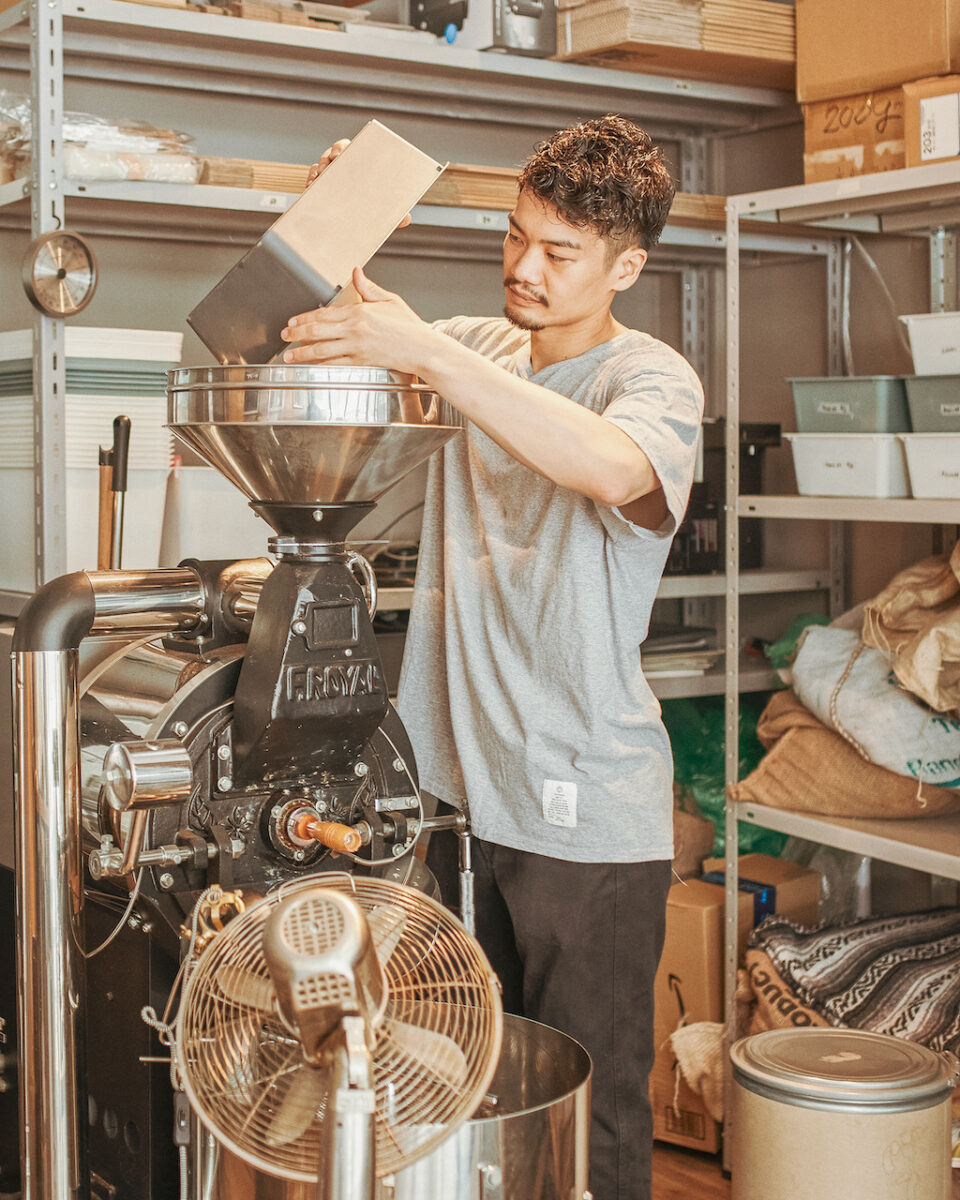
Around that time, Fujinuma’s mother’s words came to his mind, “I want to open a cafe with your father when he retires.” When Fujinuma was a junior high school student, his mother had worked part-time at an Italian restaurant and had learned how to cook professionally in the kitchen.
“I temporarily made a u-turn going back to Tochigi Prefecture to help my mother realize her dream, which she had been describing to me since I was a child. Having said that, I was also planning to go back to the film industry, so I told my colleagues in Tokyo that I would come back after helping with my parents’ cafe for a year or so, and asked them to please keep the position for me until I was able to return.”
However, when he returned to his hometown after he had been in for Tokyo several years, he was shocked to see how much his hometown had drastically changed.
Fujinuma states, “All the independent stores were gone because they were not able to compete with the big chain supermarket stores, and the shopping streets were empty. Many shops were closed, out of business. The neon-lit game arcades that used to be a symbol of the town that showed the atmosphere of “a city” had disappeared, and young punk boys and girls who used to hang out in front of the station were gone. Seeing those young punk boys and girls hanging out occasionally in the area had made me so happy. The more I saw how deserted it was, the more I wondered if I should stay in Tokyo or if I should do something interesting in Tochigi Prefecture.”

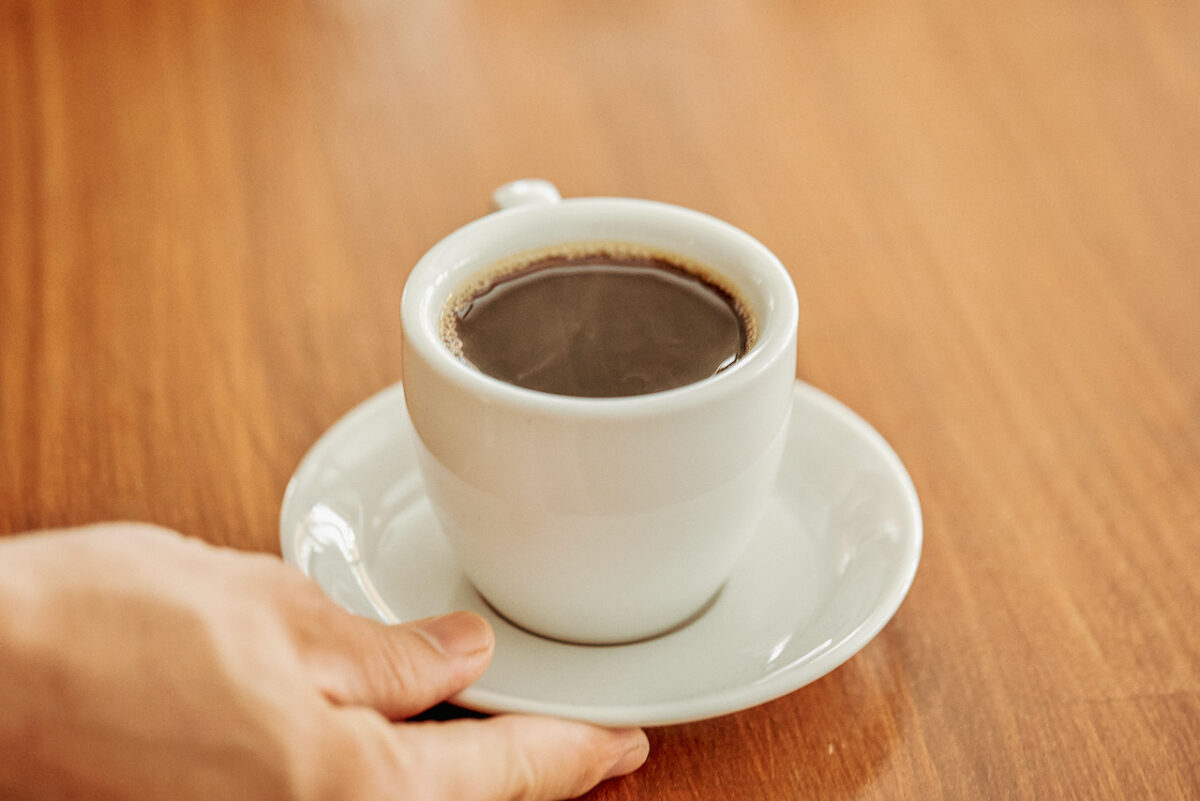
We don’t have to limit to serving only coffee
Fujinuma, who decided to open a cafe that served his mother’s home-cooked food, worked part-time at a local video production company for a year and went to Tokyo on his days off, spending his time visiting coffee shops. In the midst of focusing on looking at the mainstream coffee shops like Cafe Bach, he came across a recently opened coffee shop, Fuglen Coffee Roasters Tokyo.
Fujinuma states, “At the time, I thought coffee was something that I drank to help me stay awake. Even at Cafe Bach, I was full of myself smoking a cigarette that I thought I was cool and enjoying the moments. But when I drank coffee that tasted like fruit at Fuglen Coffee Roasters Tokyo, I felt ashamed of what I was doing. Perhaps it’s because the barista brewed it with an aeropress, but I felt like actual fresh blueberries were inside the coffee and I didn’t know how to express how impressed I was with the taste precisely then, but I remember how all the things were happening there very vividly, even today.”
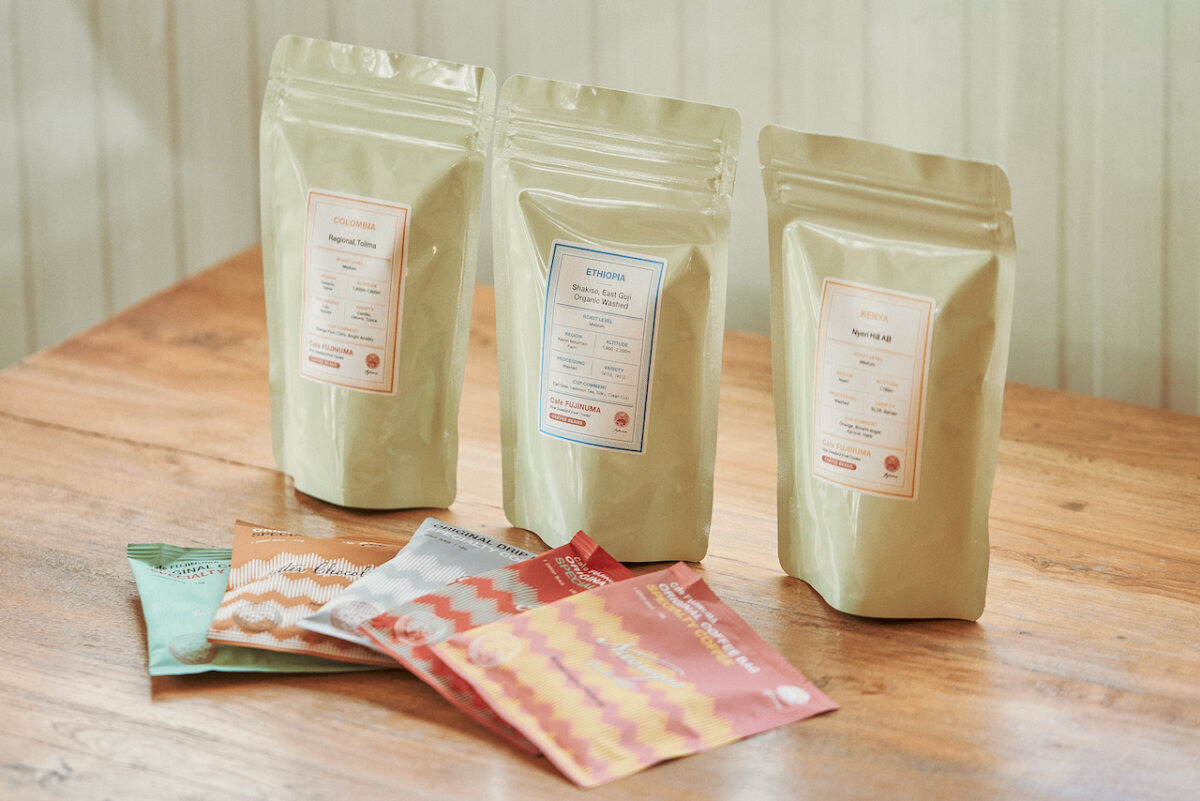
The shock was so great that Fujinuma made a change of direction drastically to create a cafe that served coffee clearly showing the character of the coffee.
“I took down the walls and created an L-shaped counter at our cafe, which was influenced by Fuglen Coffee Roasters Tokyo. I have respect and admiration for Fuglen Coffee Roasters Tokyo. That’s why I try to maintain some kind of respectful distance with the staff at Fuglen Coffee Roasters Tokyo, and I would never approach the representative, Mr. Kojima, out of respect, even when I see him at cupping parties. I don’t want to lose that distance with Mr. Kojima, who is an admired figure for me as a single regular customer.”
Fujinuma didn’t even put up a sign for the shop nor prepare a menu that was easier for customers to understand, intentionally. The reason he started Cafe FUJINUMA with such a stance was that he was inspired by coffee shops in Tokyo.
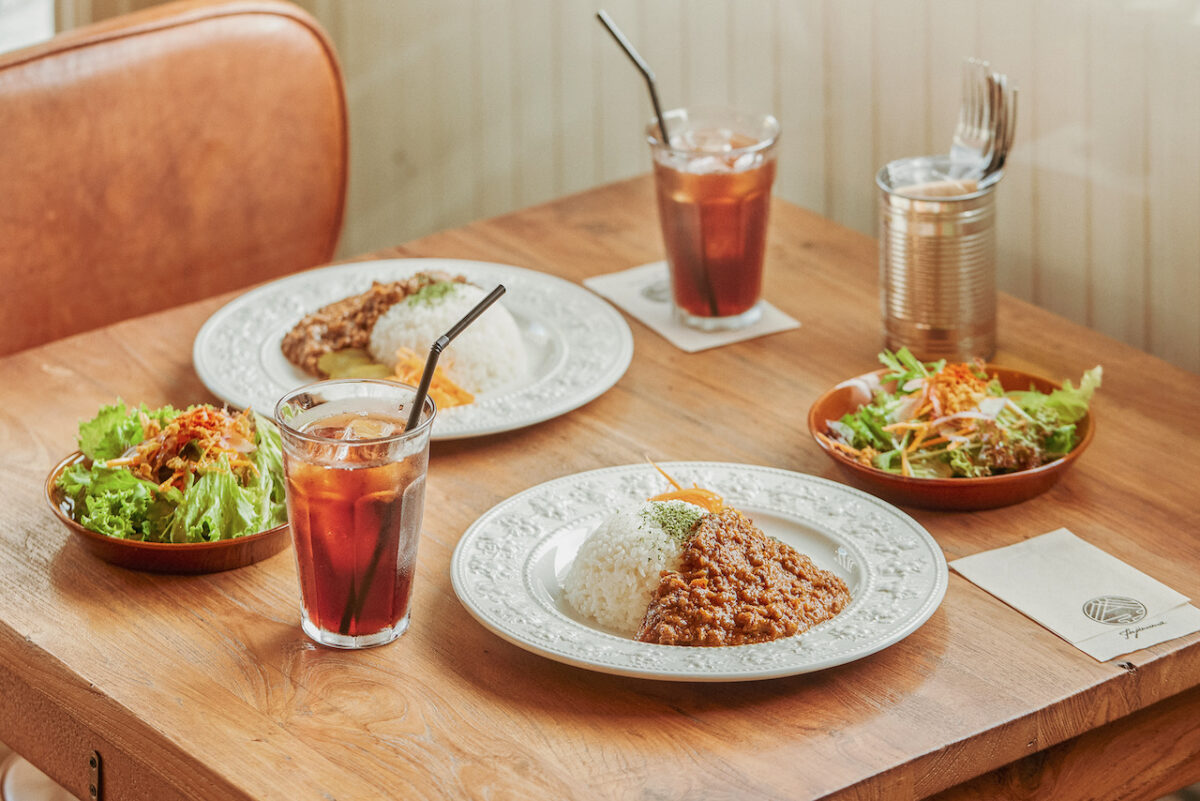
Fujinuma states, “I thought that coffee shops in Tokyo were cool. Looking back, I’m ashamed of my stance of ‘You just follow us.’ In fact, only my friends and acquaintances came to the store at first after opening the cafe, so I realized my mistake rather early on. (laughs)”
“Our store is neither a roastery cafe nor a coffee stand. I chose our store to be called simply Cafe FUJINUMA because I thought that my mother’s cooking would be the signature menu at the cafe. Although my mother is not working at the cafe at the moment due to the risk of contracting Covid-19, her recipe of Japanese-style curry pilaf has been passed down to me, and it has been one of our regular food menu items served at the cafe.”
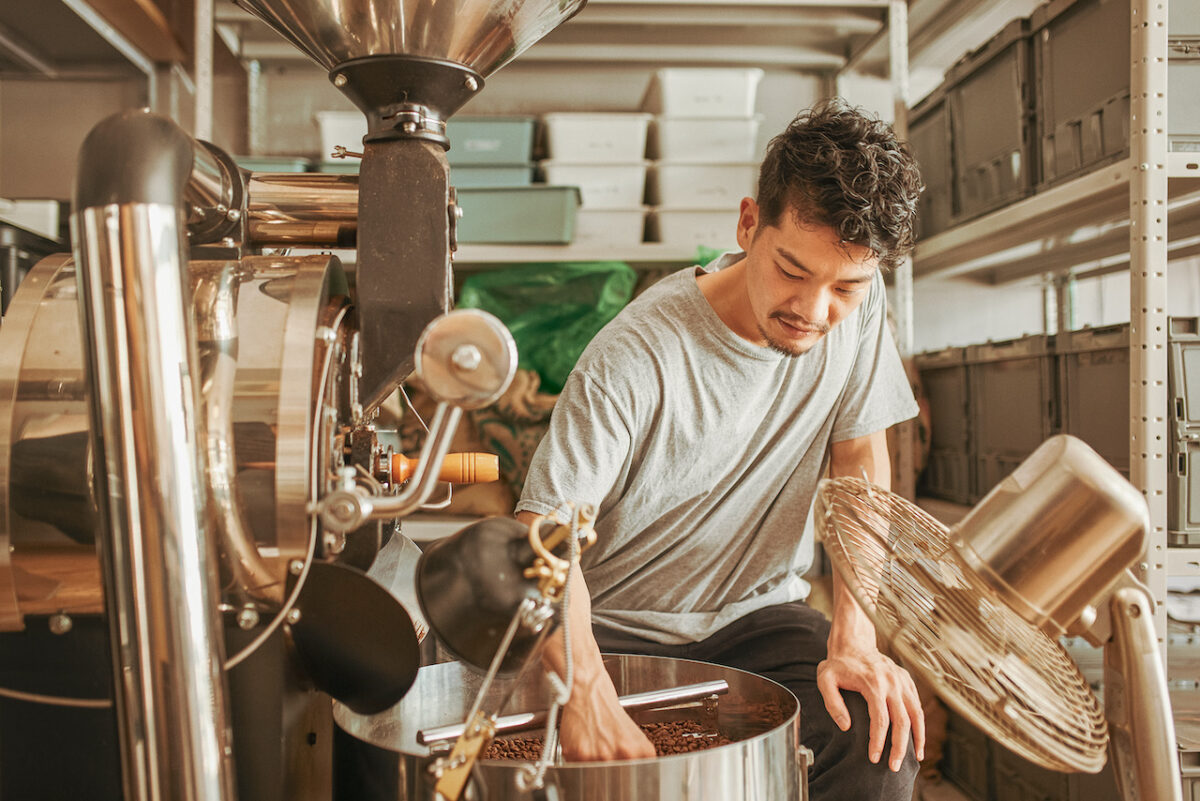
It was not always so clear-cut for him at first that his mother’s food would be the signature menu at the cafe.
Fujinuma states, “There was a time when it was difficult to tell customers that we were particular about coffee, so when my mother left the cafe for a short time to take care of her parents, we operated as a cafe mainly serving coffee like coffee shops in Tokyo. However, one time, I realized that I was trying to be just too cool and I stopped. Now I think it’s so cool to have this new standard set for the cafe that it’s a cafe where the food is very good and the coffee is very good, too.”
When her mother returned to work in 2018 until the Covid-19 pandemic started, Fujinuma offered the cafe where his mother could do whatever she wanted with her friends.
“My father, by the way, was never good at speaking with people. He is a type of person who couldn’t talk to people unless he has had a drink. Before he opened the cafe, he was saying, ‘I will be happy sitting at the counter, drinking, and talking with people,’ but once the cafe was open, he was too shy to even do that, so he became something like my mother’s personal driver every day, committed to dropping her off at work and picking her up after work.”

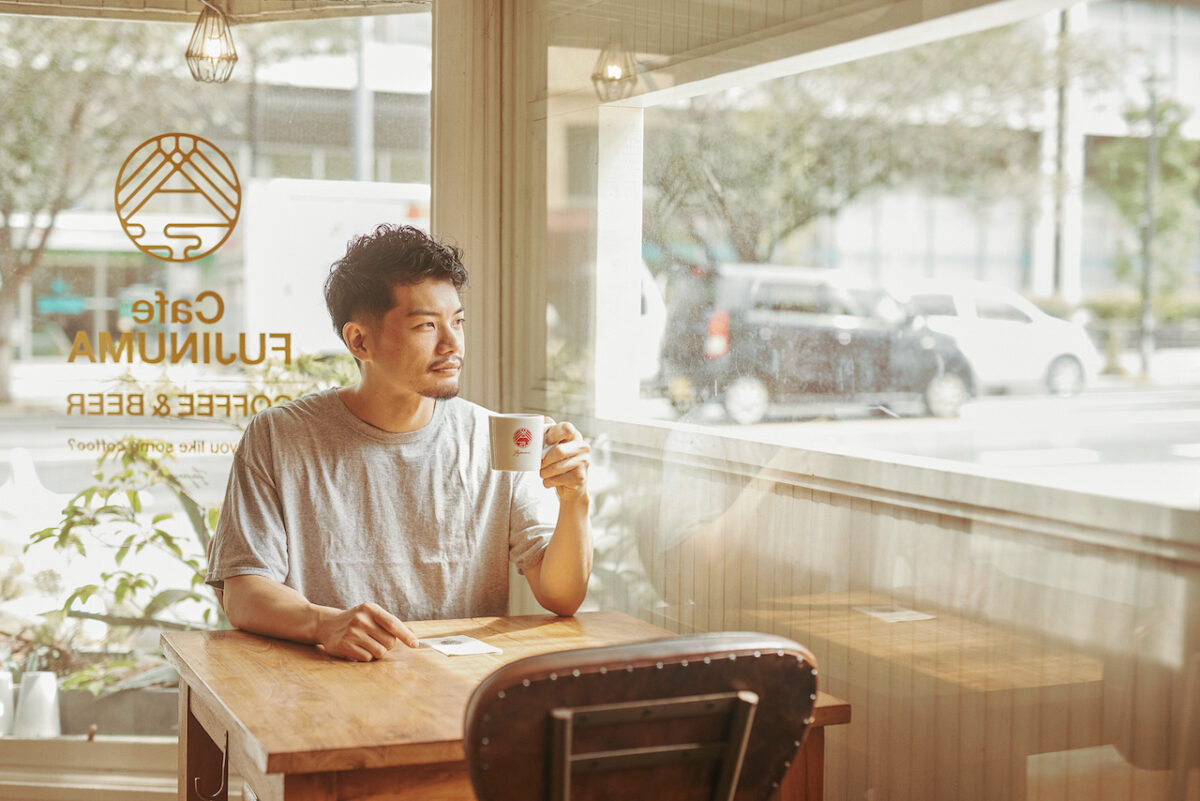
Building a foundation in the neighborhood that we are proud of
Since its founding of Cafe FUJINUMA, Fujinuma has had a slogan-like vision called “A New Standard from Oyama.”
Fujinuma states, “I’m not just trying to create a new standard for coffee from Oyama. I also want Oyama to become a new birthplace of cultures. I have carried on the vision of introducing a new standard from Oyama as my corporate philosophy after our company was incorporated. I want Oyama to be like Portland in the US, which is admired as the most desirable place to live in the United States.”
“This is also why I’ve been trying to create the space as different from the major family chain restaurants, where you just go to in wearing casual clothes that you would only wear at home with flip flops or casual sandals. I’ve been trying to create a place which blends in with people’s lives but also serves as a stylish community hub, without any barriers among people who come in to the store with a bit of flair.”
“My role is to ‘brainwash’ people into thinking that the Tochigi Prefecture is more interesting than Tokyo. (laughs) In fact, a local friend of mine who used to share a flat with me in Tokyo has returned to Tochigi Prefecture and is now working at the cafe.”

However, with the closing of major chain supermarkets in Japan like Ito-Yokado and Izumiya and stores that were in front of Oyama Station, and the decline of the local town brought about by changes in the social structure in the area has not stopped. On the other hand, some people, who feel they must do something about the current situation in the area, are trying to revitalize the community.
Fujinuma states, “For example, a joint community revitalization project by the municipal government and private companies called #TerraceOyama campaign began in 2019 with the goal of setting up open-air seating around Oyama station and on the sidewalks along Gionjo-dori street, where our store is located, to encourage people to open stores in vacant properties. In addition, the local municipal office and private companies held meetings in front of the station every two months to listen to the opinions of the local people on how to revitalize the neighborhood.
Oyama, where everything is available, is a town with great potential where people will enjoy living. This is the common perception by both locals and people who have moved here. On the other hand, Oyama is also a regional town with no distinctive or particular features. The reality is that we can’t introduce Oyama as the place to be for a particular sight or product and we don’t have any particular assets that we can be so proud of, making out town appealing to people outside Oyama.”
“That’s exactly why I want to create a place that I can be proud of. Recently, I’ve been working on a plan to use the nearby river as a tourist site and create a place where people can walk around with surfboards.”
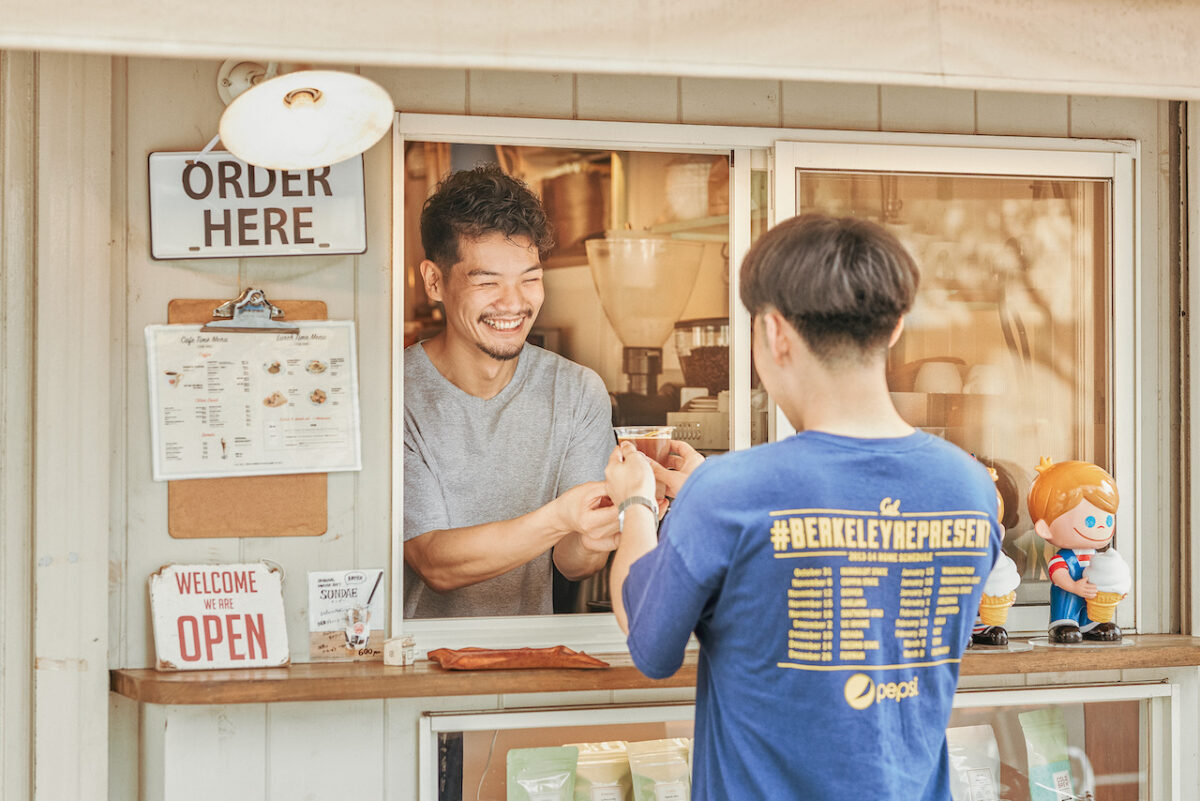
Because of the cafe’s proximity to the city hall, Fujinuma is often asked to contribute to city development such as creating a partnership with Oyama City or a prefectural “U-turn” project. He tries not to turn down requests when he is asked to work together.
Fujinuma states, “I think having a child of my own was a big factor. Previously, it was a standard in Oyama that young people go to Tokyo while punk boys and girls stay in the hometown, but I want to change that and build a foundation for our town to be a fun place to be that we are proud of.”

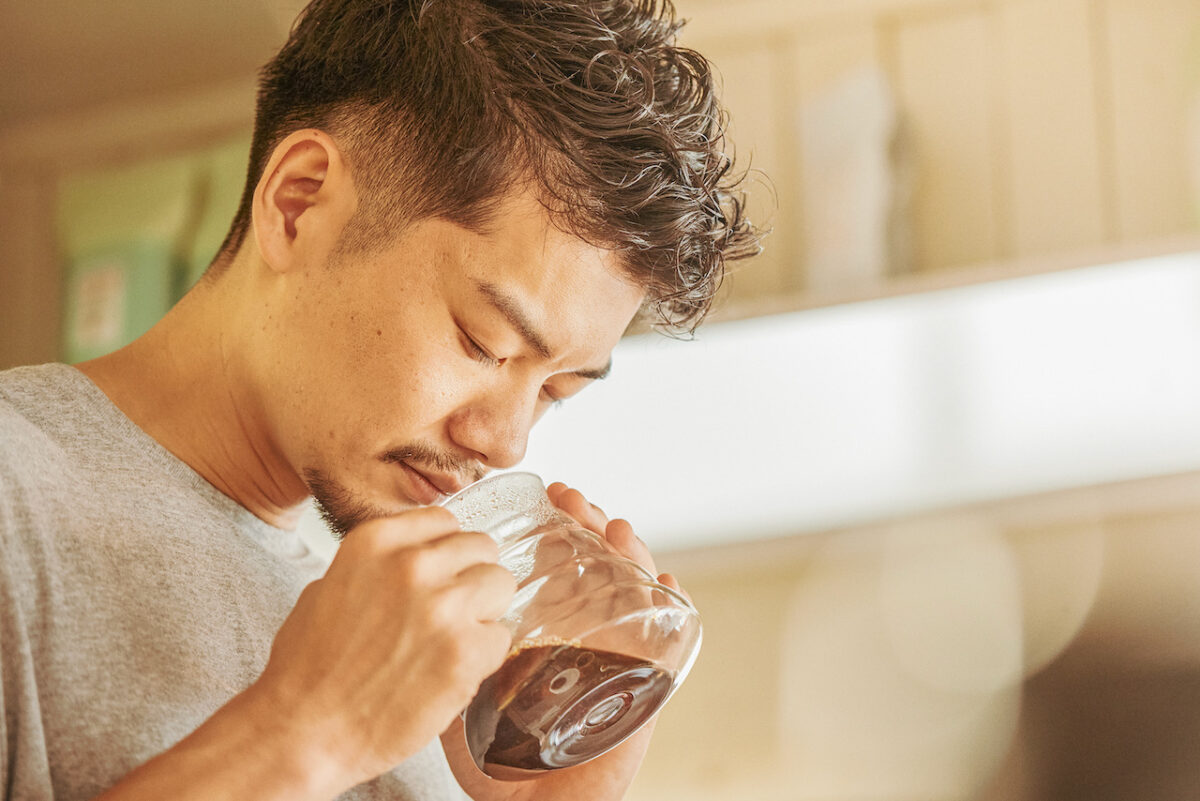
I feel that my cousin’s soul is alive
After the death of Harumitsu, Fujinuma opened a cafe as part of fulfilling his mother’s long-cherished dream. He has also actively participated in community development to revitalize his hometown that had slowly lost its vitality. Although Fujinuma’s life has been celebrated as a beautiful story, he is calm about such a reaction by others.
Fujinuma states, “People often misunderstand me. I am doing fashionable and cool things because I want to do them for myself, and then I hope that the town will flourish as a result. I’m aware that I’m doing this out of my ego, so to say that I’m doing it for my parents or for the town wouldn’t be true. If I were in the opposite position, looking at people who say something like that, I would think that they couldn’t be trusted. That’s not to say that all you have to do is to take care of yourself, but if you don’t first take care of yourself, you can’t do anything for others.”

Fujinuma’s way of life has been influenced by Harumitsu’s way of life because he passed away at a young age.
“Harumitsu lived his life as he pleased, and he bought a second motorcycle with the money his grandmother had given him specifically for getting a driver’s license for vehicles. He was so wild that he said that he wanted to open a motorcycle shop after he graduated from medical school. I admired his manly way of life indeed; it was not influenced by the opinions of others or common sense. Harumitsu’s death before his parents’ was not that he would choose as a good son to his parents in the Japanese culture, but I feel that he had lived life to fullest, like he had no regrets.”
“It’s not that I blindly worshipped and admired him before he passed away. We disagreed often, but after his death, whenever I was in trouble and feeling down, I would always think about what Harumitsu would do. Thinking about my question in this way is practically the same as asking myself the same question, but now that he has an absolute and unique existence and he has become a source of comfort for me. Well, I think there is some beauty in it although he isn’t with us anymore.”
Originally written in Japanese by Tatsuya Nakamichi
Photos by Kenichi Aikawa
MY FAVORITE COFFEE
My favorite coffee is coffee that my soon-to-be four-year-old son makes for me in the morning. I say to myself, “I don’t think it can taste good if it’s brewed with such a large amount of coffee” but when I try the coffee and it tastes very good, I feel that I finally became a father who loves my son no matter what he does.”
